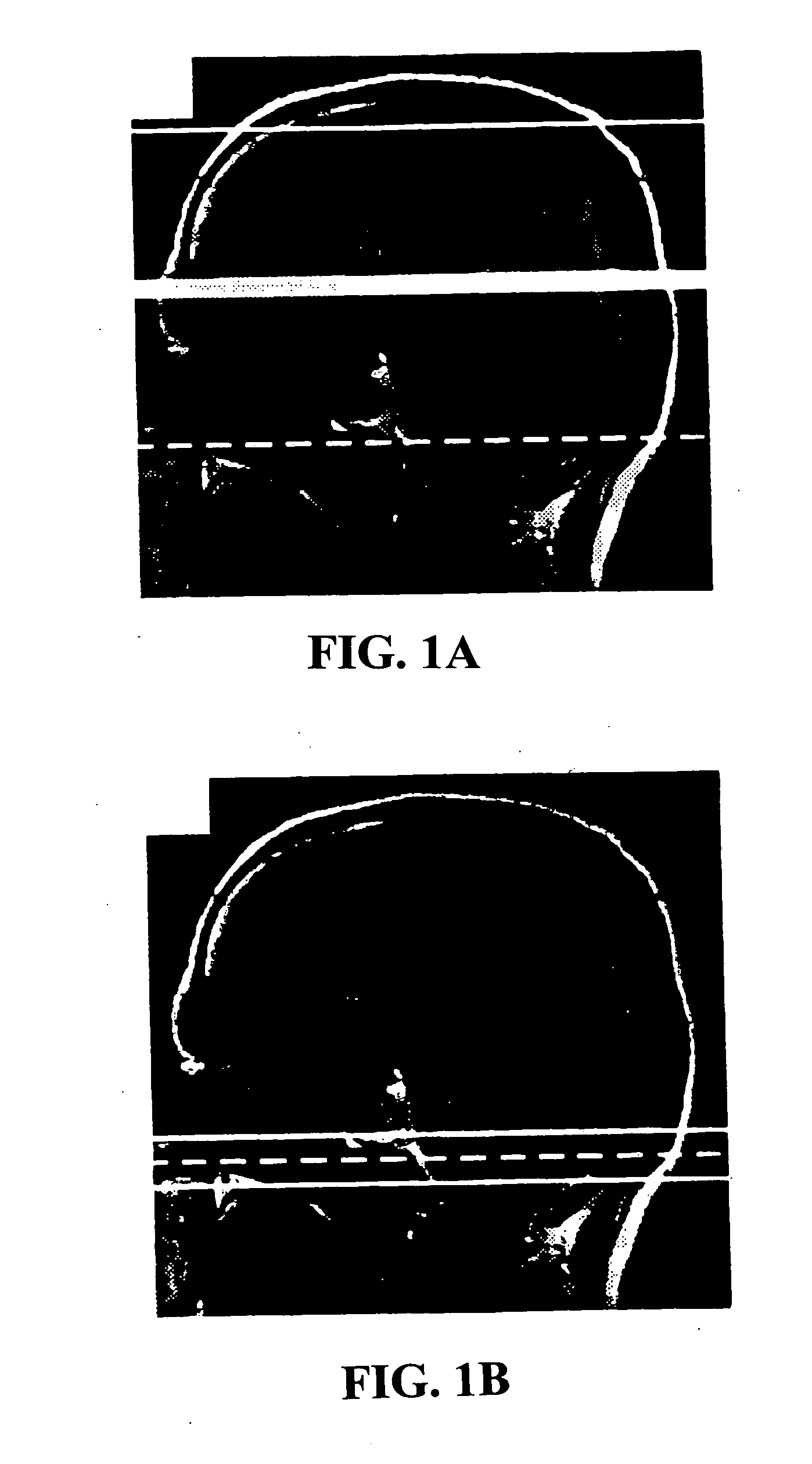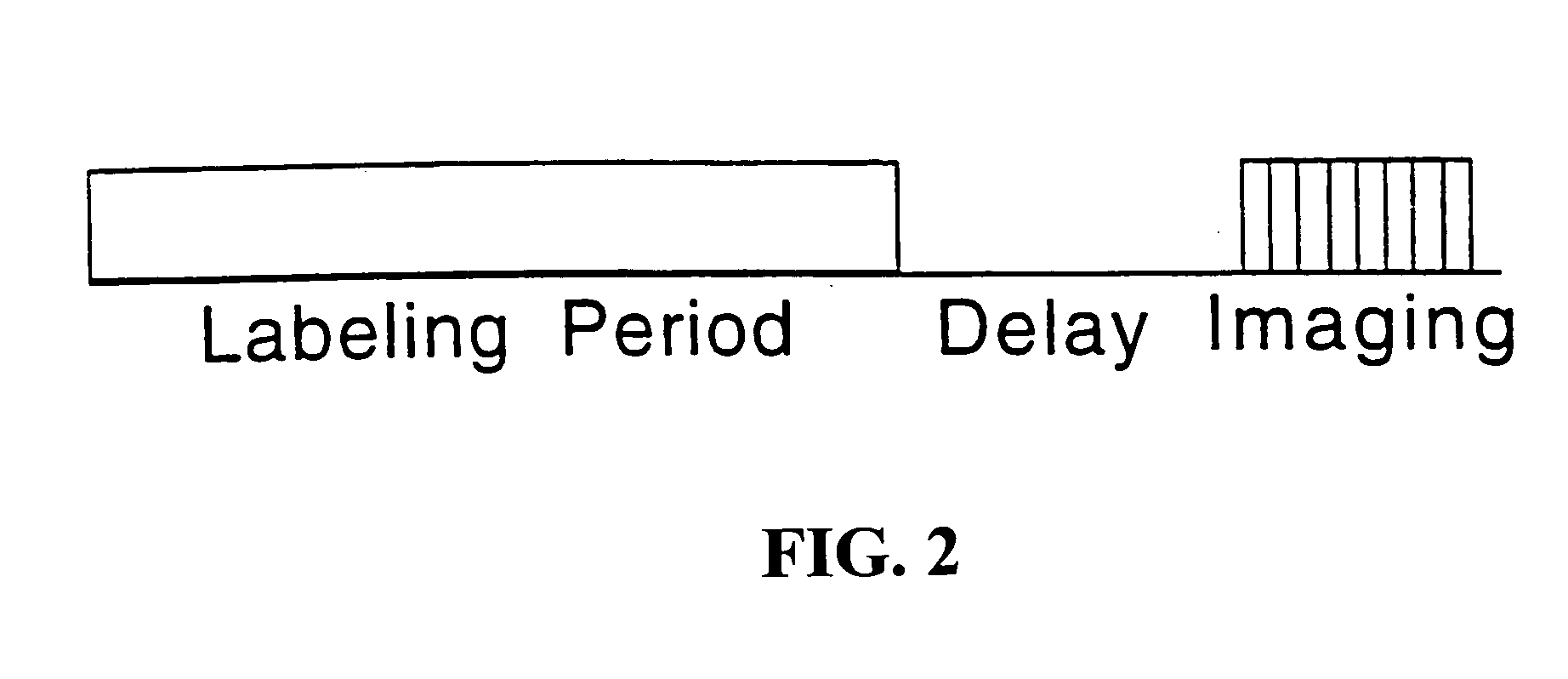Multi-slice cerebral blood flow imaging with continuous arterial spin labeling MRI
a technology of cerebral blood flow and continuous arterial spin, applied in the field of imaging regional cerebral blood flow, can solve the problems of limited applicability, prohibitively time-consuming serial acquisition of many slices, and complicated multi-slice imaging
- Summary
- Abstract
- Description
- Claims
- Application Information
AI Technical Summary
Benefits of technology
Problems solved by technology
Method used
Image
Examples
Embodiment Construction
[0028] A preferred embodiment of the invention will now be described in detail with reference to FIGS. 1-7. Those skilled in the art will appreciate that the description given herein with respect to those figures is for exemplary purposes only and is not intended in any way to limit the scope of the invention. All questions regarding the scope of the invention may be resolved by referring to the appended claims.
MATERIALS AND METHODS
Amplitude Modulated Control
[0029] Continuous application of off resonance RF power causes saturation of image intensity due to the finite width of the water line and the transfer of saturated magnetization from water molecules adjacent to macromolecules, which have much broader lines. The off-resonance inversion power applied in CASL usually causes such saturation and its presence complicates CBF imaging since the off-resonance effects may be large compared to the effects of blood flow. An approach to eliminating this saturation is the use of a secon...
PUM
 Login to View More
Login to View More Abstract
Description
Claims
Application Information
 Login to View More
Login to View More - R&D
- Intellectual Property
- Life Sciences
- Materials
- Tech Scout
- Unparalleled Data Quality
- Higher Quality Content
- 60% Fewer Hallucinations
Browse by: Latest US Patents, China's latest patents, Technical Efficacy Thesaurus, Application Domain, Technology Topic, Popular Technical Reports.
© 2025 PatSnap. All rights reserved.Legal|Privacy policy|Modern Slavery Act Transparency Statement|Sitemap|About US| Contact US: help@patsnap.com



